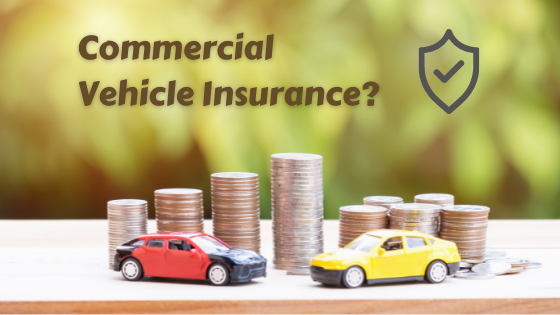When you drive your car to the grocery store or take it on the occasional road trip, do you have commercial vehicle insurance? No? Not many people do, even though it’s required if you operate a business out of your car or use it to make money in any way. Commercial vehicle insurance covers more than just regular auto insurance, so if you are using your personal vehicle for anything other than recreational purposes, it’s worth looking into commercial vehicle insurance to see how much it costs and what your options are.

What is Commercial Vehicle Insurance (CV Insurance)?
It’s not uncommon to find yourself in a situation where you have both a business and personal use of your vehicle. In such cases, you must carry two types of car insurance coverage: Commercial Vehicle Insurance (CV Insurance) and Personal Car Insurance (PCI). The question that arises is whether or not you should buy CV coverage for your personal vehicle.
Is My Personal Vehicle a Commercial Vehicle?
When most people think of commercial vehicles, they imagine giant trucks and trailers that are used to transport lots of products at once. However, not all personal vehicles are as simple as cars or SUVs. If you use your car to make money in any way—even if it’s only once a month—you could be driving a commercial vehicle. A lot of individuals who work with their hands don’t realize their automobiles may be classified as commercial under their policy; check with your provider to see if yours is.
In order to drive a commercial vehicle in most states, you must first obtain special licenses and specific levels of coverage from an auto insurer. The minimum amount required will depend on where you live and how much time you spend on highways or otherwise busy roads. This can mean additional premium costs but having proper coverage will prevent headaches down the road!
How Can I Tell if My Car Is Covered by Commercial Vehicle Insurance?
To find out if your car is covered by commercial vehicle insurance, you’ll have to look at two things: who owns your car and what type of policy you have. The state agency that regulates auto insurance issues in most states is called an insurance commissioner or something similar.
Find yours online or call them directly. These agencies can tell you if commercial vehicle insurance applies in your case. You can also contact your auto insurer to find out what’s covered under its policy; usually a quick conversation with a representative will clear up any confusion about coverage.
What Makes My Personal Car Commercial Liability Coverage Eligible?
Because we live in a litigious society, we can all agree that one day you’ll probably be sued and forced to defend yourself in court. Do you have enough insurance to handle a lawsuit stemming from an accident involving your car? Every state has its own laws about what constitutes a commercial vehicle.
In general, any vehicle used in commerce or held out for hire is considered commercial. For example, if you drive a car as part of your business (like food delivery) or if you use it to haul goods, then it’s considered commercial.
Who Should Get Commercial Vehicle Insurance?
If you use your car to earn income—for instance, if you drive it as part of your job or run a ridesharing service—it’s smart to invest in commercial insurance. That’s because not only will your rates generally be lower, but coverage is also more extensive.
For example, most personal auto policies offer liability-only protection when driving other people around in your car (with certain exceptions), but commercial policies provide broader coverage that protects passengers and other drivers should you be found liable. In addition, even if you don’t use it for work-related purposes on a regular basis, having comprehensive business-use coverage can also protect against liability claims related to damage done by third parties while using your car.
Why Is It Important to Have Enough Coverage?
If you cause an accident while driving your own car and another driver or party is hurt, that person may end up suing you. Your policy will cover legal costs and any damages awarded in a lawsuit—unless you don’t have enough coverage. Even if your insurance pays, you’ll also be on the hook for any court fees and other expenses related to filing a lawsuit.
While it can be tempting to cut corners when setting up a budget, lack of adequate car insurance coverage is one area where cutting corners can actually break your bank. If you have to use your savings or dip into other sources of income to pay off legal fees or damages awarded by a judge, then getting into an accident has become very expensive indeed!
What About State Laws Governing Private Vehicles Offering Services Like Ridesharing and TNCs?
In some states, any kind of private transportation company is considered an illegal business. In others, if you’re only selling rides in your own car or sharing it on a fee-for-service basis, there are no laws to worry about. And in others still, ride-hailing services that employ people to drive and manage their own vehicles are technically legal but can only operate with state approval.
Finally, some states make no distinction between taxis and private vehicles—they’re both illegal without a license—and some ban all services like Uber or Lyft outright. Bottom line: States have varied rules when it comes to TNCs and ride sharing–it’s up to you to know what they are.